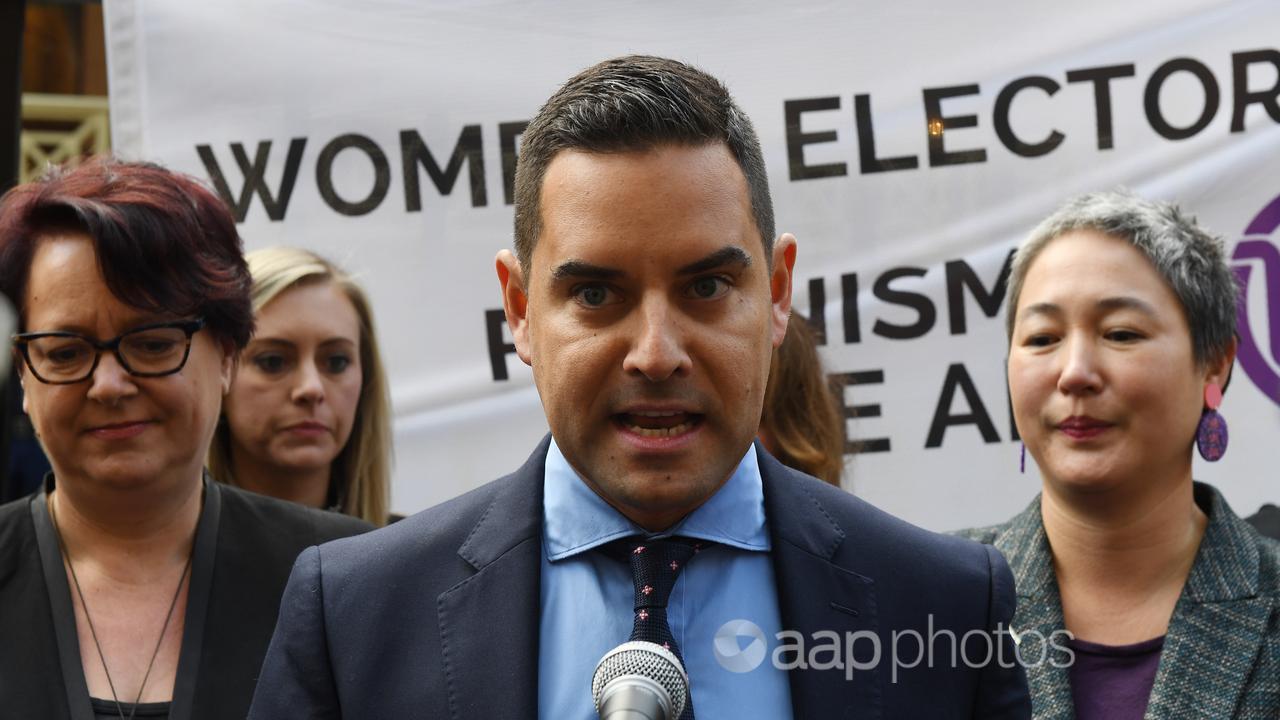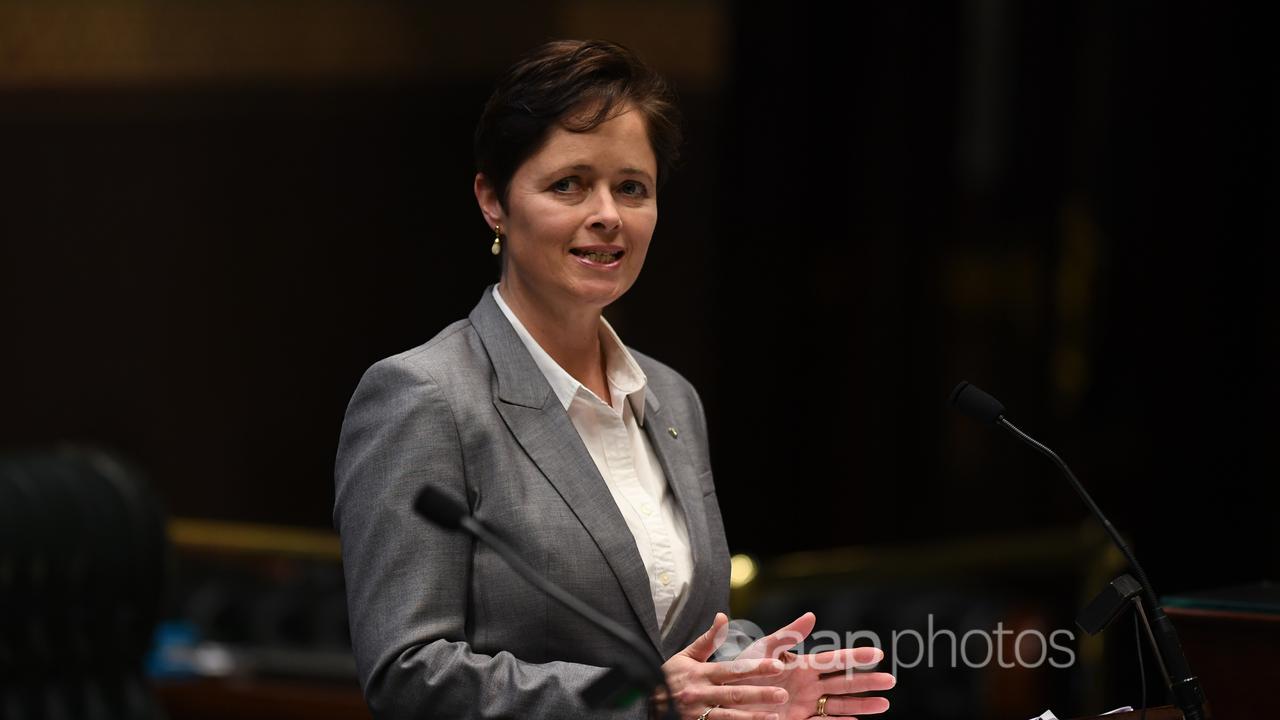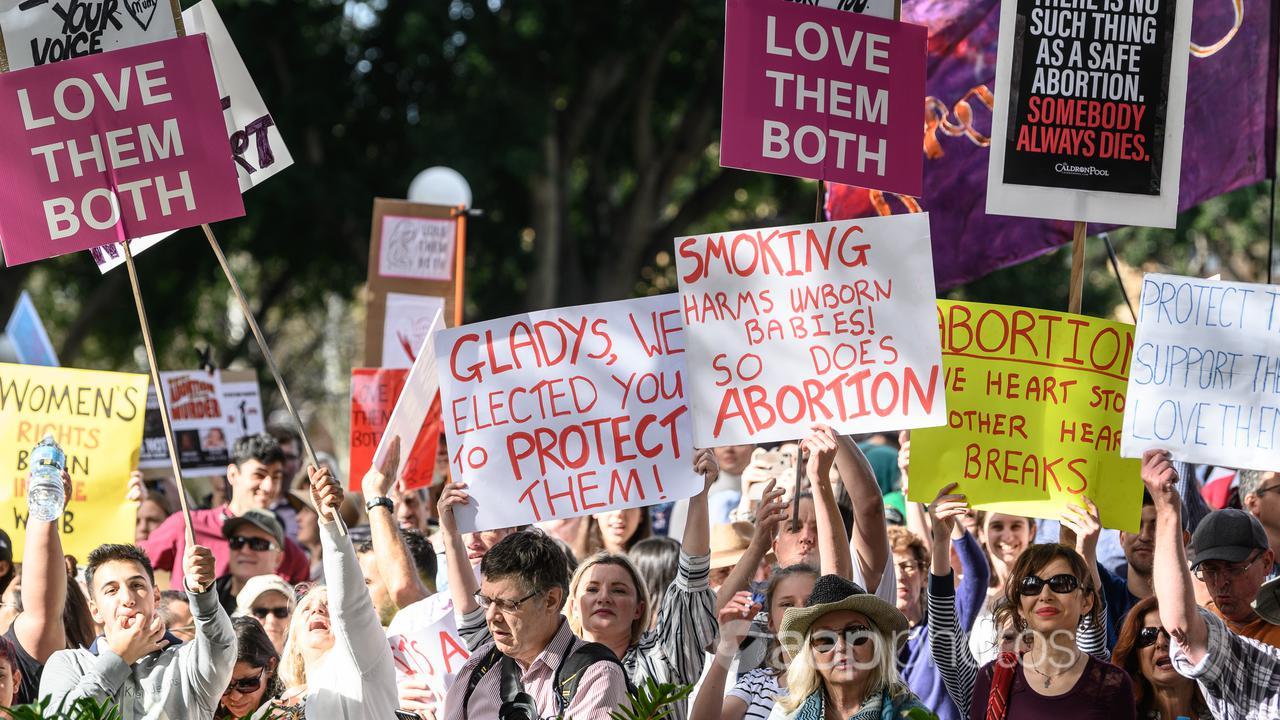A Facebook post claims that it is legal in NSW to sell fetal tissue and body parts on a lucrative worldwide market.
Jewell Drury, a former Senate candidate for the Australian Better Families party, makes a number of claims in a lengthy post. Among them is that a rejected amendment to the 2019 NSW Reproductive Health Care Reform Bill means the sale of body parts is now legal.
This is false. Experts told AAP FactCheck the resulting 2019 Abortion Law Reform Act does not enable the sale of fetal material and that the NSW Human Tissue Act of 1983 outlaws any such sale.
Ms Drury’s post begins, “I’m sick of the woke lies,” before she claims: “The Sale of Foetal Tissue & Body Parts is Legal.”
When AAP FactCheck sought clarification from Ms Drury, she responded with a link to this post.

She said an amendment had been sought during the passing of the 2019 bill.
“However, the rejection of the amendment of making the sale illegal, makes it legal to do so,” she said an email.
Cameron Stewart, a professor of health, law and ethics at the University of Sydney, told AAP FactCheck that it is incorrect to say the 2019 bill allows for the sale of fetal remains.
Prof Stewart said the direct sale of human tissue is prohibited under section 32 of the NSW Human Tissue Act.
“Human tissue may be donated under the Human Tissue Act 1983. A woman upon who has undergone a termination procedure might donate that tissue, but must give her consent to (fetal) tissue being donated for use for medical, scientific or therapeutic purposes,” he said in an email.
He added that the “supply” of tissue may be allowed if it has been subjected to processing or treatment and is “to be used for therapeutic purposes, medical purposes or scientific purposes.”
Prof Stewart clarified the word “supply” means “giving possession of” and is used primarily in medical research.
“It might also be used for other kinds of basic research and it might be used to create already established therapies… using (fetal) tissue is also a rare and important part of medical research so banning it in the way suggested by the amendment was sensationalist rubbish.”
As Ms Drury states, amendments were proposed during the passing of the 2019 bill. They included one from Tanya Davies MP which was ruled not in order by the Speaker as it was not “relevant to the subject matter of the bill” (NSW Parliament Hansard, Legislative Assembly, August 8, 2019 p 1494).
A further amendment was proposed in the Legislative Council by Natasha Maclaren-Jones MP calling for the prohibition on sale or supply of fetal tissue.

The amendment was dismissed with several MPs speaking in the chamber to make clear they felt it was unnecessary given the Human Tissue Act 1983 already outlawed any sale (NSW Parliament Hansard, Legislative Council, September 25, 2019, p103-111).
Researchers Professor Bernard Tuch and Professor Gilles Guillemin also provided submissions against the amendment in the Legislative Council, arguing the National Health and Medical Research Council’s guidelines make it clear there can be “no payment or other material benefit” for a donor who supplies human tissue for research purposes.
Helen Pringle, a human rights and justice expert at UNSW, agreed the amendments were unnecessary as the sale of tissue is already unlawful under the NSW Human Tissue Act.
“So, to sum up. No, the Act does not allow the sale of fetal materials,” she said via email.
Kate Burry, a PhD candidate at the Kirby Institute UNSW whose research investigates reproductive justice, abortion and infanticide, told AAP FactCheck the claim “is clearly false”.
She added that although aborted fetal tissue can be used for research purposes, “the benefits of such research must be significant.”
“Any research involving the use of human (or other animal) tissue would go through lengthy ethical review processes and monitoring by research ethics committees in universities, hospitals, and health departments. Of course, amongst other numerous requirements, ethical research strictly requires the free, informed, and continuous consent of anyone involved,” Ms Burry said in an email.
In addition to the Act, the National Statement on Ethical Conduct in Human Research, used to inform the design, ethical review and conduct of human research, states that “there should be no trade in human fetal tissue” (chapter 4.1 section 4.1.13).
The Verdict
The claim that someone can sell aborted fetal tissue in NSW as part of a worldwide lucrative market is false. Experts confirmed to AAP FactCheck that NSW’s 2019 Abortion Law Reform Act does not enable the sale of tissue and that the NSW Human Tissue Act 1983 outlaws it.
False – This claim is false.
* AAP FactCheck is an accredited member of the International Fact-Checking Network. To keep up with our latest fact checks, follow us on Facebook, Twitter and Instagram.
All information, text and images included on the AAP Websites is for personal use only and may not be re-written, copied, re-sold or re-distributed, framed, linked, shared onto social media or otherwise used whether for compensation of any kind or not, unless you have the prior written permission of AAP. For more information, please refer to our standard terms and conditions.


















